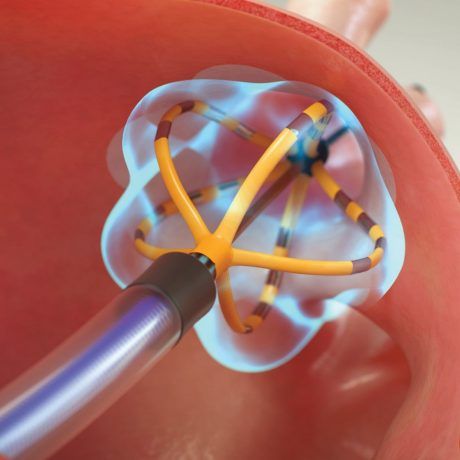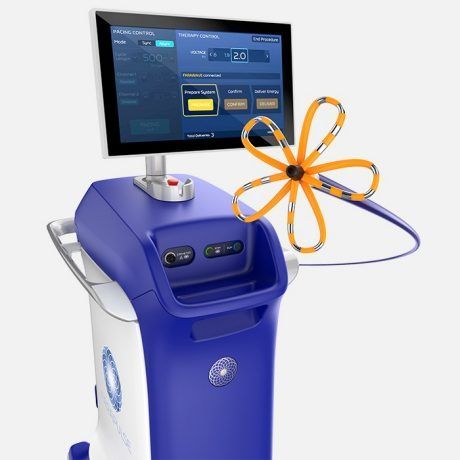Pulse Field Ablation (PFA)
in Daytona Beach & Titusville, FL
Pulse field ablation (PFA) is an innovative and emerging technology in cardiac electrophysiology used to treat atrial fibrillation (AF) and other arrhythmias. Unlike traditional ablation methods, which use heat (radiofrequency) or extreme cold (cryotherapy) to destroy abnormal heart tissue causing arrhythmias, PFA employs a technique called electroporation.
No one plans on having heart problems, but if you do you need to find a doctor you can trust. At Complete Cardiology Care we staff Cardiologists and Electrophysiologists that treat afib patients with hybrid ablations in Daytona Beach, Ormond Beach, Palm Coast, Deltona, Deland, and the surrounding areas.
1-3 hours
Reduced risk of damage to surrounding tissue e
Reduce need for medications

How it works
Electroporation: PFA uses high-intensity, short-duration electric fields to create microscopic pores in the cell membranes of cardiac tissue. This process disrupts the electrical signals in the targeted area, effectively disabling the arrhythmia-causing tissue.
Targeted Therapy: PFA is highly selective, primarily affecting the heart muscle cells while sparing nearby non-cardiac tissues such as the esophagus, phrenic nerve, or pulmonary veins. This precision reduces the risk of complications associated with traditional ablation techniques.
Advantages of PFA
Speed: PFA procedures are often faster than traditional ablation methods.
Safety: The selective nature of electroporation minimizes damage to surrounding structures, leading to fewer complications.
Effectiveness: Early studies suggest that PFA is highly effective in treating paroxysmal and persistent AF.
Reduced Recovery Time: The minimally invasive nature of PFA contributes to quicker recovery for patients.

Treat your arrhythmias at the source
If you are curious how we can help you with your arrhythmias with Pulse Field Ablation in Daytona Beach, FL please reach out to us. We are currently accepting new patients. Complete Cardiology Care staffs Cardiologists and Electrophysiologist that serve patients in Ormond Beach, Daytona Beach, New Smyrna Beach, Port Orange, Deltona, Deland, Titusville, Mims, and the surround areas.
Our Cardiologists and Electrophysiologist take nearly all insurances. We accept Aetna, AARP Medicare Complete, Blue Cross / Blue Shield, Cigna, Florida Healthcare, Florida Hospital Care Advantage, Freedom Health, Health First Health, Humana PPO - out of network benefits apply, Medicare, Optimum Healthcare, Railroad Medicare, Tricare, United Healthcare, VHN, Wellcare.
We are also a partner with the VA and are proud to serve those who have served our country!
Self Pay Cardiology services are available too! Call and ask for our price list.

